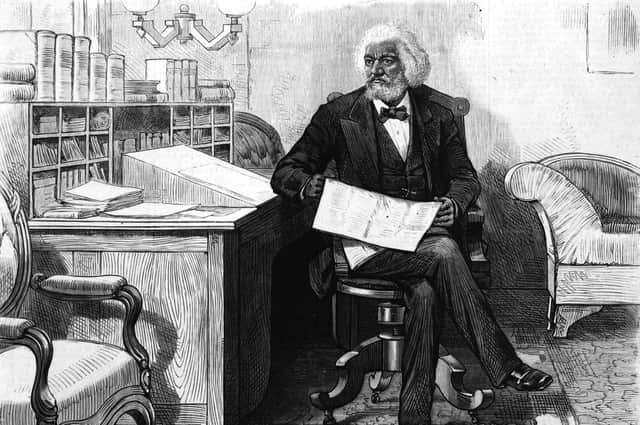Scotland's slavery debate: Robert Burns was the Abolitionists' Bard – Kenny MacAskill MP


Many are aware that Robert Burns once briefly contemplated taking a job on a slave plantation in Jamaica, though thankfully didn’t go, but few know that Abraham Lincoln, who waged war over the issue, and Frederick Douglass, an escaped slave and the foremost orator against the iniquitous trade, revered him.
Burns Night celebrations this year will be muted due to coronavirus. But they’re longstanding. In 1859, on the centenary of his birth, 61 US cities hosted events, and the one in Springfield, Illinois was attended by Lincoln, soon to ascend to the US presidency.
Advertisement
Hide AdAdvertisement
Hide AdIt’s said that Lincoln quoted Burns while he worked in his law practice and that continued into his tenure in the White House. He was said to have memorised many of the Bard’s works off by heart and he quoted extensively from them, including Tam O’Shanter and Holy Willie’s Prayer.
Indeed, his secretary recalled that as he sailed down the Potomac in April 1865, shortly before he was assassinated, he recited several of the Bard’s works ending with Lament for James, Earl of Glencairn.
Lincoln’s affections are acknowledged by the American National Park Service which has a bust of Burns in the former president’s restored home.
Douglass likewise both revered and recited Burns, though ironically took his name from another Scottish literary great. Born Frederick Bailey, he was advised to change his name when he fled north and recapture was still a threat. An avid reader of Sir Walter Scott’s works, he chose Douglass from Lady of the Lake. The extra “s” was added by him for individuality.
Ironically, his former slave owners were called Hugh and Thomas Auld, perhaps confirming Scotland’s mixed relationship with the evil trade.
Notwithstanding that, Douglass revered Burns and is recorded as having a “lifetime passion” for him. Indeed, when on his speaking tour of Scotland in support of abolition in 1846 he made a pilgrimage to Alloway.
Whatever Scotland’s role in that evil trade, Burns was the Abolitionists’ Bard.
Kenny MacAskill is Alba Party MP for East Lothian
A message from the Editor:
Thank you for reading this article. We're more reliant on your support than ever as the shift in consumer habits brought about by coronavirus impacts our advertisers.
If you haven't already, please consider supporting our trusted, fact-checked journalism by taking out a digital subscription.
Comments
Want to join the conversation? Please or to comment on this article.

